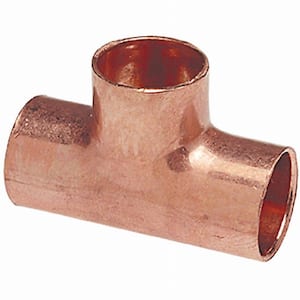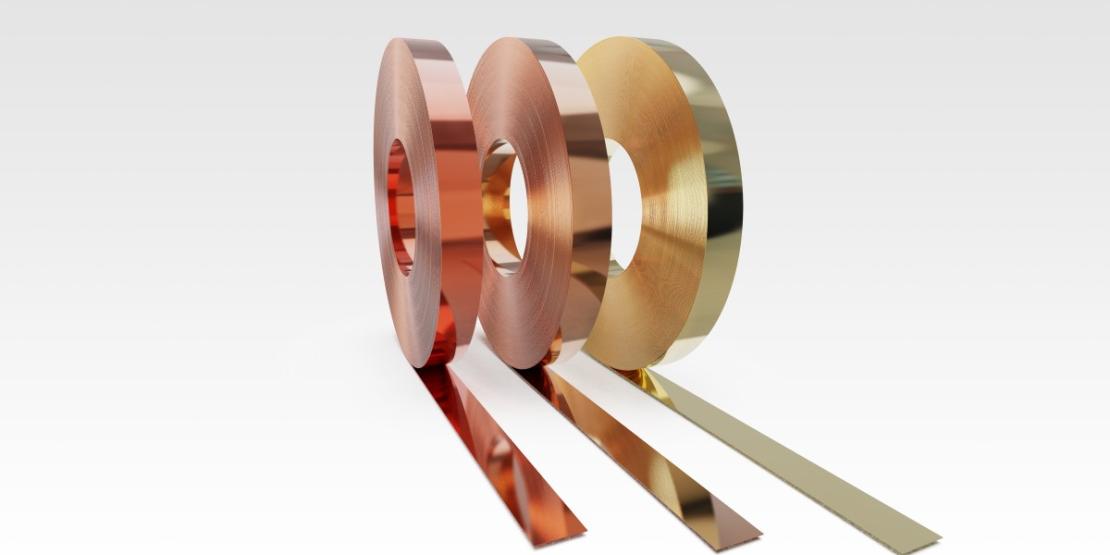Discovering the Diverse Applications of Copper Products in Modern Industries
From improving the performance of electrical systems to playing a vital role in eco-friendly energy innovations, the versatility of copper is apparent. As industries progressively focus on innovation and sustainability, the diverse applications of copper warrant a closer assessment, especially concerning their prospective impact on future ecological techniques and technical innovations.
Electrical Applications of Copper
Copper is an important material in the electrical market, representing roughly 60% of the overall need for non-ferrous metals worldwide - Copper Products. Its remarkable electric conductivity, which is nearly two times that of light weight aluminum, makes it the favored option for a large range of electrical applications. From electrical wiring systems in residential and commercial structures to high-voltage power transmission lines, copper guarantees efficiency and reliability in electrical power delivery
In enhancement to circuitry, copper is important to the manufacturing of electrical components such as transformers, generators, and electric motors. These parts take advantage of copper's thermal conductivity and malleability, crucial for warmth dissipation and efficient performance. Copper's resistance to deterioration improves the life expectancy and toughness of electrical systems, making it a cost-efficient option in the lengthy term.
The growth of renewable resource sources, such as solar and wind power, has additionally increased the need for copper in electrical applications. As markets change in the direction of lasting power options, copper's duty comes to be a lot more crucial. Overall, the flexibility and performance attributes of copper strengthen its status as a foundation material within the electrical industry, driving development and performance throughout numerous applications.
Pipes and Piping Solutions
In modern-day plumbing systems, the option of materials considerably affects both capability and longevity. Copper has become a recommended alternative due to its special residential or commercial properties, including corrosion resistance and antimicrobial characteristics. These qualities make sure that copper piping stays safe and resilient for carrying safe and clean water, a critical consideration in domestic and industrial applications.
One of the crucial benefits of copper in pipes is its capability to stand up to high temperatures and pressures, making it suitable for a selection of applications, from hot water systems to home heating and cooling down networks. Additionally, copper's adaptability permits for easier setup in complicated piping designs, reducing the threat of failures and leakages.
An additional noteworthy benefit is copper's lengthy life expectancy, often going beyond 50 years with appropriate upkeep. This durability not just minimizes substitute prices however likewise adds to sustainable practices by minimizing waste. Copper's recyclability straightens with modern environmental criteria, advertising a circular economy within the pipes sector.
Copper in Renewable Energy
The convenience of copper prolongs beyond plumbing applications, playing a crucial duty in the renewable resource field. Its excellent electrical and thermal conductivity makes it an essential material in the manufacturing and distribution of renewable resource resources, especially solar and wind power. In solar panels, copper is utilized in solar batteries and circuitry, promoting efficient energy conversion and transmission. Its resistance to rust makes sure durable performance, which is crucial for optimizing power outcome with time.

Additionally, as the global need for electric cars (EVs) increases, copper's role in battery systems and billing infrastructure ends up being a lot more considerable. The material's capability to perform electrical power successfully is integral to the efficiency of EV batteries, enhancing variety and charging rate.
Copper's Duty in Electronic devices
Electronic devices making depends greatly on copper's remarkable residential properties, specifically its high electric conductivity and thermal performance. These features make copper an ideal choice for a vast array of electronic parts, consisting of ports, circuit card, and circuitry. The metal's ability to effectively transmit electrical signals makes certain marginal power loss, which is important in high-performance electronic tools.
Additionally, copper's thermal conductivity plays a substantial function in heat dissipation, securing sensitive components from overheating. This is specifically crucial in modern electronic devices, where small designs bring about boosted warmth generation. Copper is additionally favored for its malleability and ductility, enabling it to be easily formed into complex styles that meet the needs of sophisticated digital applications.
With the surge of customer electronics, visit our website telecoms, and electric lorries, the demand for copper in the electronic devices industry remains to grow. As technologies in innovation evolve, copper stays indispensable to attaining greater performance and integrity in electronic items. Its recyclability even more boosts its allure, as suppliers seek lasting remedies without compromising high quality. Therefore, copper continues to be a cornerstone material in the ever-expanding area of electronic devices.
Innovative Utilizes in Manufacturing

One significant application is in additive production, where copper-based materials are used in 3D printing processes. This enables the creation of light-weight components and intricate geometries, specifically in the aerospace and automotive markets. Furthermore, copper's thermal conductivity makes it a perfect selection for heat exchangers, enhancing performance in industrial cooling systems.
Furthermore, the increase of clever manufacturing has seen the consolidation of read the article copper in IoT gadgets, where its conductive capabilities sustain sophisticated sensing innovations. In the world of sustainable energy, copper is crucial in the manufacturing of photovoltaic panels and wind turbines, helping with much more effective energy conversion and distribution.
As sectors aim for sustainability and technology, copper's flexibility and performance proceed to place it as a critical product, driving developments in manufacturing and adding to the growth of smarter, a lot more efficient items.
Final Thought
In summary, copper items demonstrate impressive adaptability throughout numerous modern sectors. Copper Products. Their superior conductivity improves electric applications, while rust resistance makes certain dependability in plumbing. The integral role of company website copper in renewable resource and its necessary feature in electronic devices underscore its relevance in advancing sustainable techniques. In addition, innovative uses in manufacturing highlight copper's versatility and withstanding significance. Collectively, these applications show copper's important payment to technical development and industrial efficiency in contemporary culture.
From boosting the efficiency of electric systems to playing an essential duty in eco-friendly energy modern technologies, the versatility of copper is evident. As markets increasingly prioritize technology and sustainability, the diverse applications of copper call for a closer assessment, particularly regarding their prospective effect on future environmental methods and technical advancements.
The growth of sustainable energy resources, such as solar and wind power, has actually further increased the demand for copper in electric applications. In general, the versatility and performance attributes of copper strengthen its standing as a keystone product within the electrical field, driving innovation and efficiency throughout numerous applications.
The versatility of copper extends past plumbing applications, playing an important function in the sustainable energy industry.
Comments on “Enhancing Your Cooking Area with Costs Copper Products: Tips and Best Practices”